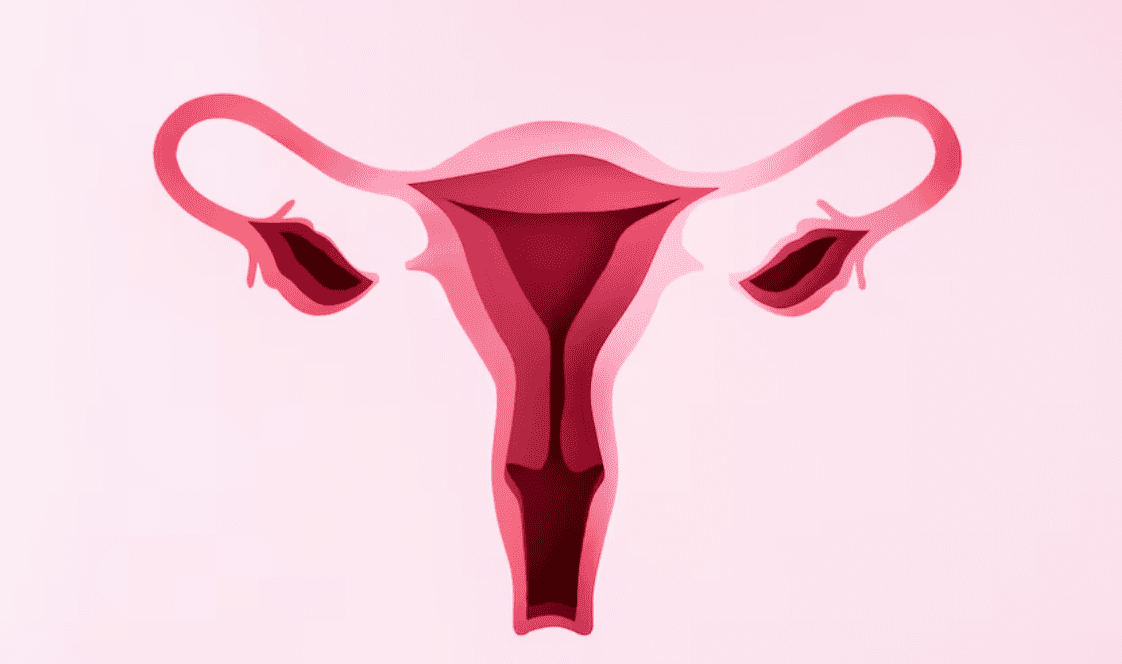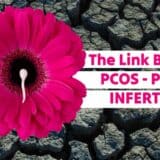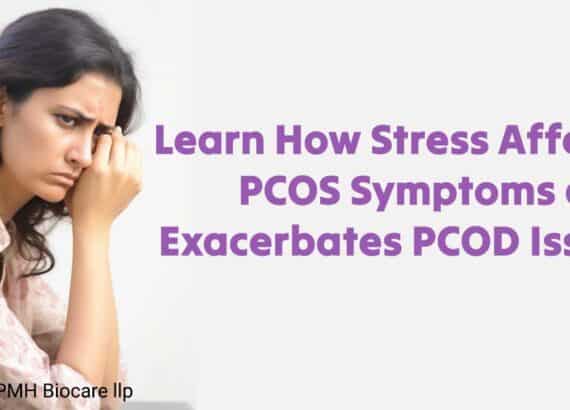PCOD vs PCOS: Understanding the Differences, Causes, Symptoms, and Treatment Options

PCOD vs PCOS: What’s the Difference?
Are you confused about the differences between PCOD and PCOS? You’re not alone. These two conditions are often used interchangeably, but they’re not the same. In this article, we’ll dive into the details and help you understand the key differences between PCOD and PCOS.
PCOS affects each woman differently, and there is no one-size-fits-all treatment. It’s essential to work with a healthcare provider to create an individualized plan that meets your unique needs. It’s also important to remember that PCOS is not your fault and that your body is beautiful just the way it is. Embrace your body and focus on living a healthy, fulfilling life.
PCOD vs PCOS: Prevalence
PCOD is a common condition that affects women in India and around the world. On the other hand, PCOS is less prevalent in comparison. While both conditions can cause fertility problems, PCOD rarely interferes with fertility. Women with PCOD can often get pregnant without many hassles, taking certain medical aid if required. On the other hand, women with PCOS may find it harder to get pregnant due to irregular ovulation, and it may also cause difficulties such as preterm birth or miscarriage.
PCOD vs PCOS: Symptoms
PCOD and PCOS share many of the same symptoms, but there are some key differences. PCOD symptoms are mild and can be reversed with diet management and lifestyle modifications. Women with PCOD may experience hirsutism, i.e., excessive hair growth on the face and body, acne, darkness of skin where the skin creases, such as the neck, armpits, and groin, hair thinning, menstrual irregularity, heavy bleeding when periods do occur, and severe obesity.
On the other hand, PCOS symptoms require infertility treatments. Women with PCOS may experience irregular periods, which trigger heavy bleeding when periods do occur, male pattern baldness, headaches, hirsutism, darkness of skin where the skin creases, such as the neck, armpits, and groin, and weight gain. Both conditions can contribute to fertility problems, but PCOS symptoms appear at an early age due to metabolic problems.
PCOD vs PCOS: Symptoms Overlap
While there are some key differences between PCOD and PCOS symptoms, there are also overlaps. For instance, both conditions can cause acne, hirsutism, and darkness of skin where the skin creases, such as the neck, armpits, and groin. However, the intensity, or the way in which they present themselves, varies. Weight gain is common to both, but it is more severe in PCOD than it is in PCOS.
PCOD vs PCOS : Key Difference Between PCOS and PCOD Symptoms
Here are 10 difference between PCOS and PCOD symptoms:
- Insulin resistance : PCOS is commonly associated with insulin resistance, while PCOD is not.
- Ovulation : PCOS can cause irregular or absent ovulation, while PCOD can cause infrequent ovulation.
Hormone levels : PCOS can cause higher levels of testosterone, luteinizing hormone (LH), and follicle-stimulating hormone (FSH), while PCOD does not.- Acne and hair growth : PCOS can cause acne and unwanted hair growth, while PCOD does not typically cause these symptoms.
- Weight gain : Both PCOS and PCOD can cause weight gain, but PCOS is more strongly associated with weight gain and obesity.
- Insomnia : PCOS can cause insomnia, while PCOD does not typically cause this symptom.
- Menstrual cycle : PCOS can cause irregular periods, while PCOD can cause infrequent periods.
- Cysts : Both conditions can cause cysts on the ovaries, but the number and size of cysts can vary.
- Infertility : Both conditions can cause infertility, but PCOS is more strongly associated with this condition.
- Metabolic syndrome : PCOS is more strongly associated with metabolic syndrome than PCOD.
PCOD vs PCOS: Complications
Both PCOD and PCOS can lead to complications if left untreated. PCOS, in particular, can lead to a number of health problems such as diabetes, high blood pressure, and heart disease. Women with PCOD are also at increased risk of developing type 2 diabetes, heart disease, and sleep apnea. Early diagnosis and treatment are crucial to prevent complications.
PCOD vs PCOS: Causes
The exact causes of PCOD and PCOS are still unknown, but there are a few risk factors that have been identified. Some of the risk factors for both PCOD and PCOS are insulin resistance, obesity, and genetic predisposition. However, PCOS is also linked to metabolic problems and hormonal imbalances, which are not typically associated with PCOD.
PCOD vs PCOS: Diagnosis
The diagnosis of both PCOD and PCOS involves a medical history, physical examination, and various tests such as blood tests, ultrasounds, and hormone level tests. A diagnosis of PCOS also requires that the patient has two out of three symptoms: polycystic ovaries, irregular periods, and/or high levels of male hormones.
PCOD vs PCOS: Management
The management of PCOD and PCOS involves a combination of lifestyle modifications and medical treatments. For PCOD, lifestyle changes such as weight loss, regular exercise, and a healthy diet can help manage symptoms. In addition, medications such as Metformin and Clomiphene may be prescribed to regulate ovulation and menstrual cycles.
PCOS, on the other hand, requires more intensive management. Lifestyle modifications such as exercise and a healthy diet are still important, but medication such as oral contraceptives, anti-androgens, and fertility drugs may also be needed. For women with severe PCOS, surgery such as ovarian drilling may be considered.
PCOD vs PCOS: Treatment
The treatment of PCOD and PCOS depends on the severity of the condition and the symptoms present. For PCOD, lifestyle changes and medication may be sufficient to manage symptoms. For PCOS, medication and lifestyle changes may be necessary, along with fertility treatments in some cases. It is important to work closely with a healthcare professional to determine the best treatment plan.
PCOD vs PCOS: Myths and Facts
There are several myths surrounding PCOD and PCOS. One of the most common myths is that women with PCOD and PCOS cannot get pregnant. However, with proper treatment, many women with these conditions are able to conceive. Another myth is that women with PCOD and PCOS are overweight, but this is not always the case. It is important to seek medical advice and treatment if you suspect you have PCOD or PCOS, rather than relying on hearsay or misinformation.
PCOD vs PCOS: Conclusion
In conclusion, PCOD and PCOS are not the same condition, although they share many similarities. When it comes to PCOD vs PCOS, the latter is considered to be much more severe and long-lasting by medical experts as it is a metabolic disorder. PCOD, on the other hand, is deemed temporary and treatable with a combination of diet and exercise. If you are experiencing any of the symptoms mentioned in this article, seek medical attention without delay.
Here are some frequently asked questions about the differences between PCOS and PCOD:
Q: What is the difference between PCOS and PCOD?
A: PCOS stands for Polycystic Ovary Syndrome, while PCOD stands for Polycystic Ovary Disease. Although they share some similar symptoms, PCOS is primarily a hormonal disorder that involves high levels of androgens and insulin resistance, while PCOD is characterized by enlarged ovaries with multiple small cysts and is caused by hormonal imbalances, insulin resistance, and inflammation.
Q: Is PCOS the same as PCOD?
A: Although PCOS and PCOD share some similarities, they are not the same. PCOS is primarily a hormonal disorder that involves high levels of androgens and insulin resistance, while PCOD is characterized by enlarged ovaries with multiple small cysts and is caused by hormonal imbalances, insulin resistance, and inflammation.
Q: What are the symptoms of PCOS and PCOD?
A: The symptoms of PCOS and PCOD are similar and can include irregular periods or no periods, heavy bleeding during periods, acne, excessive hair growth (hirsutism), weight gain or difficulty losing weight, ovarian cysts, and infertility.
Q: What is the difference between PCOS and PCOD symptoms?
A: The symptoms of PCOS and PCOD are very similar, but there are some differences that can help with diagnosis. PCOS is more likely to involve irregular periods, while PCOD may involve more pain and discomfort.
Q: Can PCOS and PCOD be cured?
A: There is no cure for PCOS or PCOD, but symptoms can be managed with proper treatment.
Q: Can PCOS and PCOD affect fertility?
A: Yes, both PCOS and PCOD can affect fertility. However, with proper treatment, many women are able to conceive.
Q: What are the risk factors for PCOS and PCOD?
A: Risk factors for both PCOS and PCOD include a family history of the condition, obesity, a sedentary lifestyle, insulin resistance, and diabetes.
Q: How are PCOS and PCOD diagnosed and treated?
A: Diagnosis of PCOS and PCOD typically involves a physical exam, blood tests, and imaging tests (such as ultrasound). Treatment may include lifestyle changes (such as weight loss and exercise), medications (such as birth control pills and insulin sensitizers), and surgery (such as ovarian drilling or removal). It’s important to work with your healthcare provider to develop an individualized treatment plan.
Q: Can PCOS and PCOD lead to other health problems?
A: Both PCOS and PCOD can increase the risk of other health problems, such as diabetes, heart disease, and endometrial cancer.






Comments
Trackbacks & Pingbacks
[…] PCOD (Polycystic Ovary Disease) are common conditions affecting women of reproductive age. These conditions can cause hormonal imbalances, irregular menstrual cycles, weight gain, and other symptoms. […]
[…] that regulate various functions, including growth and development, metabolism, mood, and fertility. Hormonal imbalances can cause a wide range of symptoms, such as weight gain, fatigue, mood swings, acne, and irregular […]